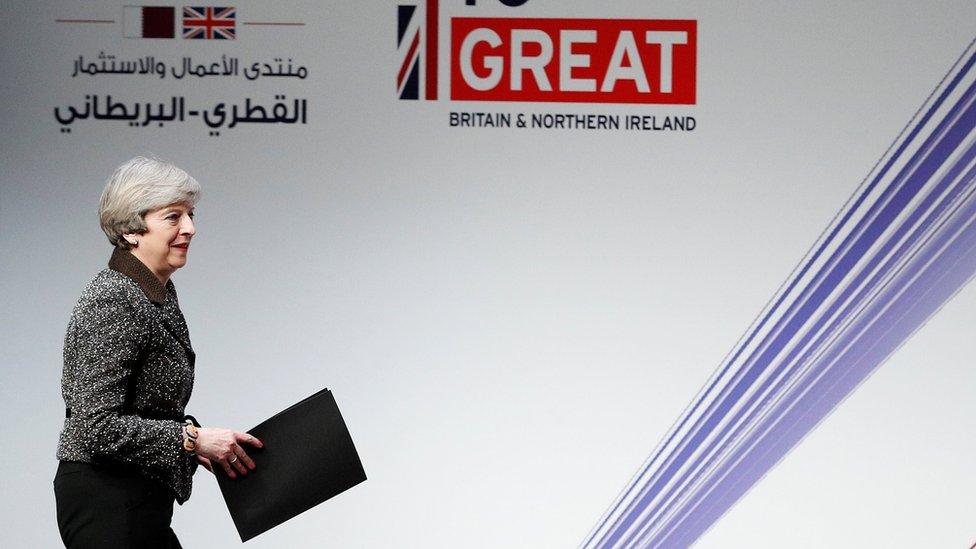Spare a thought...
- Published

Politicians (and hands up, the people who report on their work) are good at talking about each other.
What they say, and what they actually mean, matters hugely. But - with ministers revealing very little that they haven't already in advance of the triggering of the legal process to leave - there quite possibly won't even be that much more substance to come in tomorrow's letter.
Among all the speculation what's not being discussed that much is not the juggle between the UK and the rest of the EU, not the juggle between Scotland and the rest of the UK, not even the juggle inside the Tory party with Remainers urging the PM to face down the Eurosceptic right, but how on earth will Theresa May be able to seal her deal in two years' time with the electorate when they wanted such different things from the referendum.
And for the prime minister, that's one of the toughest parts of what beckons.
Leaving the EU didn't just divide the country between north and south, or town and country, or even constituency by constituency, but street by street, and of course inside the same households in some cases. Today we're with the prime minister in Birmingham where she is heralding more British investment from the Gulf state of Qatar, again underlining her oft-repeated desire to build closer relationships with countries outside the EU. But there's a big political job closer to home to be done.
As a city Birmingham voted narrowly to Leave the EU - 50.42% to 49.58%. But its constituencies were divided, six Leave and four Remain, as were even council wards which are often no more than a collection of a few streets.
As a snapshot, on one side of the same street in the Edgbaston constituency (which was a narrow Remain area) one council ward, Harborne, voted by nearly 70% to remain. On the other side of the road, Quinton, there was a clear verdict the other way. That situation is of course replicated time and again right around the country.
Of course the broad divisions are pertinent and worth reflecting. But the decision of whether to leave or stay created political splinters in thousands upon thousands of communities for all sorts of different reasons.
Even if (and it is an enormous 'if') Theresa May manages to achieve all that she wants in her negotiation with the rest of the EU, persuading the many different parts of the electorate she's got it right will be a tall order indeed.